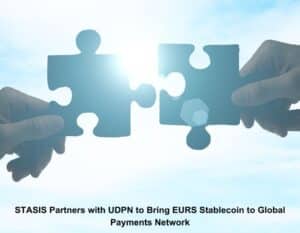
[ad_1]
Financial modeling platform Gauntlet has been awarded a grant from Uniswap Foundation to improve DAO incentive mechanisms, according to an announcement from Gauntlet.
Very excited to announce our engagement with @gauntletnetwork and their new Applied Research Group!
Gauntlet will be focused on designing and specifying incentive programs to benefit the Uniswap Protocol. https://t.co/RjzV02hFhf
— Uniswap Foundation (@UniswapFND) April 11, 2023
Gauntlet describes itself as a “crypto-native financial risk management solutions provider.” It uses economic models to optimize fees and rewards for decentralized finance (DeFi) protocols, according to the announcement. The company is creating a new division, Gauntlet Applied Research, which will specifically focus on problems related to the growing decentralized autonomous organization (DAO) ecosystem.
In its announcement, Gauntlet said that it will provide three pieces of research to UniswapDAO. The first will be a quantitative framework that the DAO can use to evaluate the success or failure of the Uniswap protocol. The second will be an analysis of trader and liquidity provider behavior, and the third will be at least three proposals for incentive mechanisms to allow the DAO to achieve its goals.
Gauntlet said that it expects all three of these deliverables to be completed by June 2023.
Devin Walsh, executive director of Uniswap Foundation, expressed hope that Gauntlet’s research will help to improve not only the Uniswap protocol, but also the crypto ecosystem as a whole, stating:
One of our goals at the Uniswap Foundation is to build long-term relationships with the most talented and values-aligned teams in the space, and work with them on the most complex and interesting questions facing the Uniswap Protocol.
DAOs have become a basic feature of the crypto economy over the past few years, with DAO analytics provider DeepDAO currently listing over 2,300 existing DAOs. Most DAOs are governed by token holders, who are allowed to vote directly on the blockchain to support or reject proposals for changes to a protocol.
However, token-based DAO governance has also been criticized by some industry experts, including Ethereum Founder Vitalik Buterin, who stated that this system could lead to “vote-buying” and “outright attacks.”
Over the past few months, some DAOs have attempted to provide better incentive mechanisms in the hopes of preventing vote-buying attacks. For example, MakerDAO passed a constitution on March 27 to formalize governance processes and provide checks and balances to prevent concentration of power.
[ad_2]







